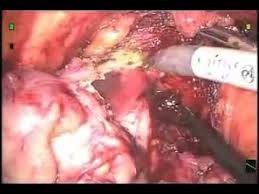Long-term clinical trial findings indicate that a combination of Chemotherapy Combo and Suicide Gene Therapy can successfully eliminate prostate tumor cells.
Suicide Gene Therapy involves genetically altering prostate cancer cells to trigger the immune system of the body to attack them. According to a study published in the Journal of Radiation Oncology on Dec. 12, the Houston Methodist Hospital researchers controlled prostate cancer cell by combining viruses and adenovirus, a virus known to cause common cold, to create a herpes virus gene into the patient's cell.
As soon as the herpes virus gene was administered and started producing thymidine kinase, researchers gave the patients an anti-herpes drug called valacyclovir.
Brian Butler from Houston Methodist Hospital explained via UPI, "The combination attacked the herpes DNA, and the TK-producing tumor cells self-destructed, which is why the procedure is called 'suicide gene therapy."
The researchers used 66 patients, who were divided into two groups. The study, which was conducted between 1999 and 2003, saw participants being grouped based on the severity of their sickness.
Participants with less severe cases of prostate cancer were treated with radiotherapy, while severe cases received both radiotherapy and hormonal therapy. The two groups then underwent Suicide Gene Therapy. Less severe cases of cancer received the therapy twice during the study and more severe cases underwent the therapy three times.
Reportedly, less severe cases of cancer has a 97 percent five-year survival rate, whereas the patients with more severe cancer cases indicated 94 percent survival rate. This implied that the survival rate of these patients was between 5 to 20 percent better than what is acquired by contemporary procedures.
Participants who completed the trial as well had high five-year liberty from failure rates, indicating there were no possibilities of cancer recurrence in biochemical testing.
The researchers pointed out that the outcomes were very promising considering some of the participants in the study had already been perceived incurable.
According to Link Springer, the researchers wrote in their study, "The combination of immunomodulatory in situ gene therapy and IMRT with or without hormonal therapy is feasible, safe, and effective in the treatment of prostate cancer. The effectiveness of this combined approach was likely through enhanced cytotoxicity, antitumor immune response, and abscopal effects."
Watch the footage below to understand how a combination of Suicide Gene Therapy and Chemotherapy Combo works to kill prostate tumor cells.



























